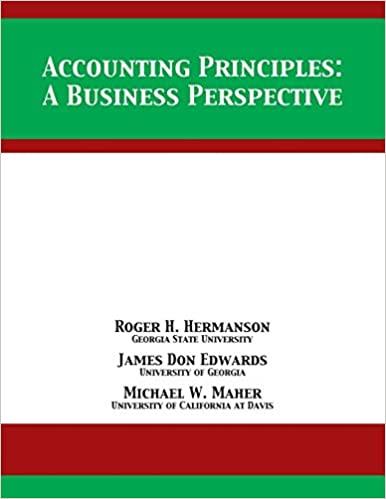Answered step by step
Verified Expert Solution
Question
1 Approved Answer
Critical thinking question If an individual with an employment income of 5 0 , 0 0 0 p . a . buys camera equipment to
Critical thinking question
If an individual with an employment income of pa buys camera equipment to
start, say, a YouTube channel for $ but subsequently, the venture is a failure,
will this amount used to acquire the equipment, $ be a noncapital loss as a
sole proprietor?
When an individual embarks on a venture, like starting a YouTube channel, the question of
whether expenses related to the venture can be deducted hinges on the principle of a
"reasonable expectation of profit" REOP and whether the venture is indeed or can bea
source of business income.
If the individual genuinely entered the venture with a reasonable expectation of profit and
carried out the activities in a businesslike manner, then it is treated as a business activity. If the
venture incurs expenses exceeding the income it generates, it results in a business loss.
In this example:
The individual has an employment income of $
They spend $ on camera equipment for their YouTube channel.
The venture doesn't generate any income and fails.
If the CRA accepts that the YouTube channel was a legitimate business activity with a REOP
which they should, as per case primacy the $ would be a business loss. This business
loss would offset other sources of income in the year.
So the individual's total income for tax purposes for the year would be:
$employment income $business loss$$ Taxable income.
This results in a reduction of taxable income, potentially leading to a lower tax liability.
If the CRA challenges the legitimacy of the business activity and believes it was a personal or
hobby activity, then the loss might not be deductible. Maintaining proper documentation,
records, and evidence that you pursued the venture with a business intent and a reasonable
expectation of profit is essential.
In this case, the $ spent on camera equipment would indeed be considered a noncapital
loss as a sole proprietor if it's accepted as a legitimate business activity. If the individual has
no other income sources to offset in the current year, they can carry this noncapital loss back
three years or forward up to twenty years to offset other income.

Step by Step Solution
There are 3 Steps involved in it
Step: 1

Get Instant Access to Expert-Tailored Solutions
See step-by-step solutions with expert insights and AI powered tools for academic success
Step: 2

Step: 3

Ace Your Homework with AI
Get the answers you need in no time with our AI-driven, step-by-step assistance
Get Started


